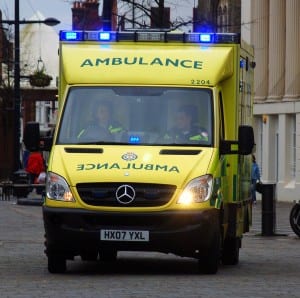Ambulance (aired on BBC One) takes a look at the extraordinary day-to-day running of the ambulance service. From the first-responders to control room staff, the documentary offers a unique insight into how the ambulance service operates.
Each episode of Ambulance focuses on a different area of the service from receiving calls in a call centre, dispatching the most appropriate resources and responding to patients. Across the three series, Ambulance has captured a wide range of issues including cardiac arrests, stabbings, car accidents and mental illness. In one of the most recent episodes, the programme addresses the state of the National Health Service (NHS) with footage of ambulances queuing outside of hospitals.
Ambulance provides its audience with a real insight into the role of a paramedic. As part of their job, the service treats and cares for patients around the clock. Staff are dedicated and committed to helping others, but the programme raises an important question: who looks after those who look after us?
A significant amount of research is now being conducted into the ambulance service [1]. Research has investigated decision making, patient experience and clinical interventions.
However, the ambulance service remains under significant pressures including response times and a lack of resources. This has a major impact on staff with statistics showing that individuals experience increased levels of depression and anxiety compared to other healthcare staff [2].
Ambulance unveils candid, unseen moments of front-line staff talking to one another and discussing their experiences of the job. They talk openly about their feelings of sorrow after a patient’s death and joy after a baby is born. It reminds us that these people are human after all, despite doing a superhuman job. It reminds us why we should continue our research to help and look after those who look after us.
Laura Simmons is a PhD student and a member of the Lincoln Institute for Health and the Community and Health Research Unit (CaHRU). Her PhD is investigating sickness absence in the ambulance service.
For more information about the work the University of Lincoln are doing with the ambulance service and pre-hospital care, please visit the Community and Health Research Unit’s webpage – http://cahru.org.uk/
- National Institute for Health Research. (2016). Care at the scene: Research for ambulance services.
- Health and Social Care Information Centre. (2015). Sickness absence full-time equivalent days lost by reason of sickness in England.
